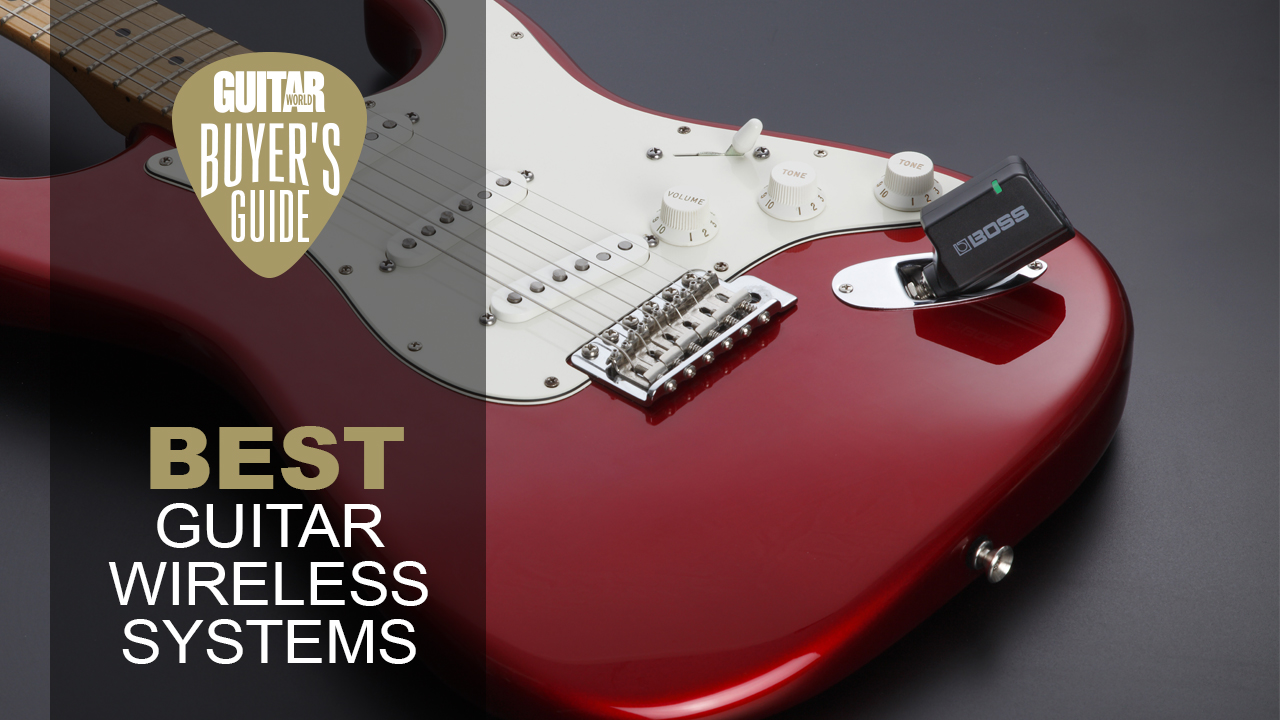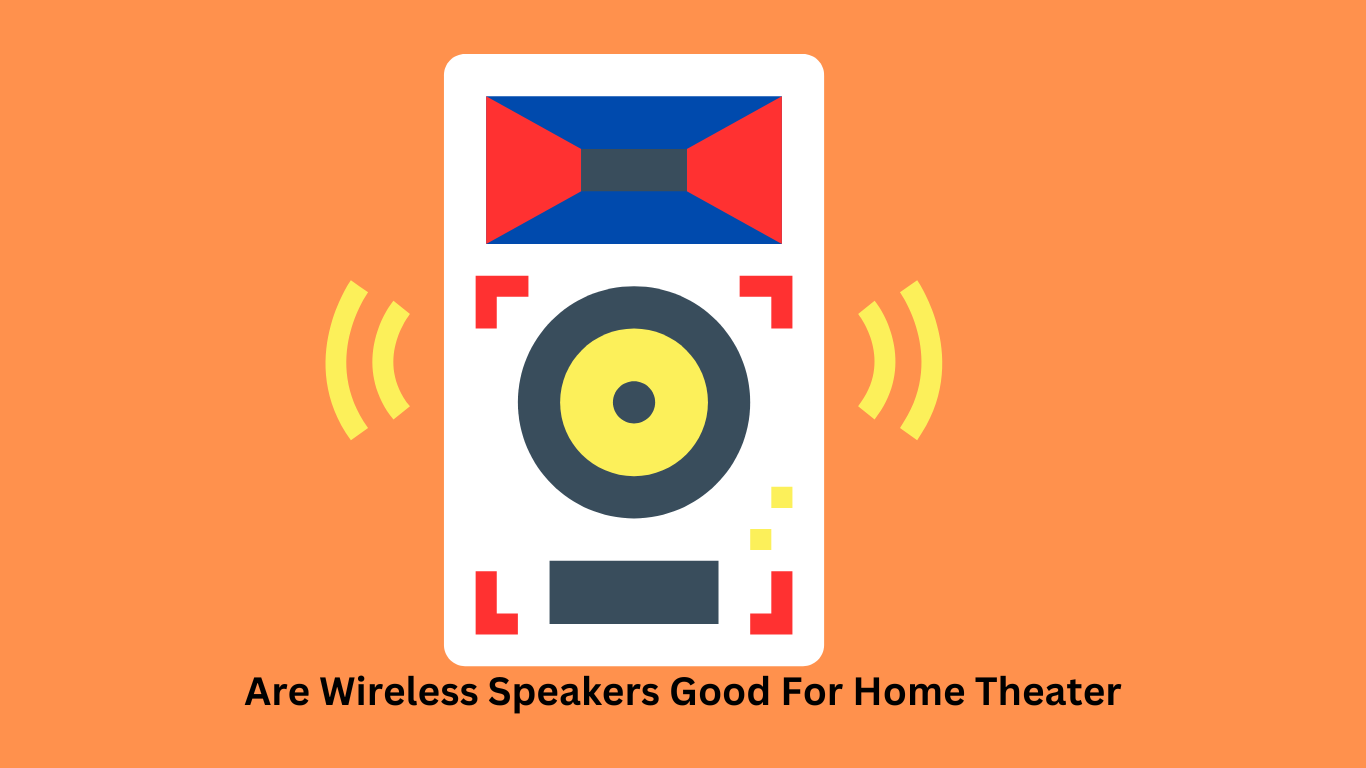Can Electric Guitars Be Wireless
Do you love the electrifying sound of a guitar? Have you ever wondered if electric guitars can go wireless? Well, you’re in for an exciting ride! In this article, we’ll explore the fascinating world of wireless electric guitars. From cutting the cord to unleashing your musical freedom, we’ll dive deep into how these innovative instruments work. So grab your air guitar and get ready to rock out with the question, “Can electric guitars be wireless?”
Imagine strumming your guitar without worrying about pesky cables getting tangled up. Picture yourself moving around the stage, jumping and dancing to the rhythm of your music, all while playing your favorite tunes. With wireless technology, all of this becomes possible. But how does it work? How can an electric guitar break free from its cords and still produce incredible sound? In the next few paragraphs, we’ll uncover the magic behind wireless electric guitars and how they can bring your musical performance to a whole new level.
From Bluetooth connections to specialized radio frequencies, wireless electric guitars rely on advanced technology to transmit audio signals without any physical cables. Not only does this enhance mobility and stage presence, but it also eliminates the need for long, tangled cords. Whether you’re a professional musician or a bedroom rockstar, wireless electric guitars offer flexibility, convenience, and the freedom to move around with ease. So, let’s dive into the details and discover how you can say goodbye to those tangled cables and embrace the world of wireless sound. Shall we?
Electric guitars can indeed be made wireless through the use of wireless guitar systems. These systems consist of a transmitter that connects to the guitar and a receiver that connects to an amplifier or sound system. By eliminating the need for cables, wireless guitar systems provide freedom of movement on stage without sacrificing sound quality. They are a popular choice among musicians who want to move around more freely during performances.


Can Electric Guitars Be Wireless: The Future of Instrument Connectivity
Electric guitars have revolutionized the music industry, providing musicians with a wide range of sounds and effects. However, one question that often arises is whether electric guitars can be wireless. In this article, we will explore the possibilities and advancements in wireless technology for guitars, and how it can enhance musicians’ performance and creativity.
The Evolution of Wireless Connectivity for Electric Guitars
Over the years, advancements in technology have paved the way for wireless connectivity in various industries, including music. Initially, electric guitars were connected to amplifiers using cables, which limited musicians’ mobility on stage. However, with the advent of wireless technology, guitarists can now enjoy the freedom to move around without being constrained by cables.
Wireless guitar systems consist of a transmitter that attaches to the guitar and sends the audio signal wirelessly to a receiver connected to an amplifier or audio interface. These systems use radio frequencies to transmit the signal, ensuring a reliable and high-quality connection. The receiver then converts the wireless signal back into an audio signal that can be amplified or recorded.

The Benefits of Wireless Guitars
1. Enhanced Mobility: One of the key advantages of wireless guitars is the freedom to move around on stage and interact with the audience. Musicians can showcase their creativity without worrying about tripping over cables or getting tangled up during their performance.
2. Convenience and Ease of Set-Up: Wireless guitar systems eliminate the need for long cables, reducing the clutter on stage and simplifying the setup process. Musicians can easily connect their guitars to the transmitter and receiver, saving time and effort.
3. Improved Sound Quality: Wireless guitar systems have come a long way in terms of sound quality. Modern systems use advanced technology to ensure minimal latency and high-fidelity audio transmission, providing musicians with a seamless and immersive playing experience.
4. Versatility: Wireless guitar systems are not limited to stage performances. They can also be used in recording studios, allowing musicians to move freely and experiment with different setups and positions for optimal sound capture.
5. Expandability: Many wireless guitar systems offer the option to connect multiple transmitters to a single receiver, enabling guitarists to switch between different guitars seamlessly during a performance. This versatility opens up new creative possibilities for live shows and recordings.
Wireless vs. Wired: Choosing the Right Option
While wireless guitars offer numerous benefits, it’s important to consider the specific needs and preferences of each musician. Here are a few factors to consider when deciding between wireless and wired options:
1. Latency: Latency refers to the delay between playing a note and hearing the sound. While modern wireless systems have significantly reduced latency, some musicians may still prefer the immediate response and reliability of wired connections, especially for fast-paced playing styles.
2. Battery Life: Wireless guitar systems rely on batteries for operation. Musicians should ensure they have spare batteries or invest in rechargeable options to avoid any interruption during a performance.
3. Budget: Wireless guitar systems can vary in price, depending on the features and capabilities. Musicians should consider their budget and the level of wireless connectivity they require before making a purchase.
4. Interference: Wireless systems operate on specific frequencies, and interference from other equipment or wireless devices can affect the signal quality. Musicians should choose systems with multiple frequency channels or advanced interference avoidance technology to minimize any potential issues.
In conclusion, wireless connectivity has revolutionized the way musicians can perform with electric guitars. The advancements in wireless guitar systems provide enhanced mobility, convenience, and improved sound quality, allowing musicians to unleash their creativity without the limitations of cables. However, musicians need to consider factors such as latency, battery life, budget, and interference when deciding whether to go wireless or stick with wired connections. The future of electric guitars is undoubtedly heading towards wireless technology, offering musicians a new realm of possibilities on stage and in the studio.
Key Takeaways: Can Electric Guitars Be Wireless?
- Yes, electric guitars can be made wireless with the help of wireless guitar systems.
- Wireless guitar systems use radio frequency technology to transmit the signal from the guitar to an amplifier or speaker wirelessly.
- Wireless systems allow guitarists to move freely on stage without the constraints of cables.
- Wireless guitar systems come in different models and price ranges, offering options for different needs and budgets.
- Wireless systems may introduce a slight latency or interference, but modern technologies have minimized these issues.
Frequently Asked Questions
Are you wondering if electric guitars can be wireless? Look no further! We have compiled the top 5 questions and answers to satisfy your curiosity about going wireless with your electric guitar.
1. How can I make my electric guitar wireless?
Making your electric guitar wireless is easier than you might think. You can achieve this by using a device called a wireless transmitter. This small device plugs into your electric guitar’s output jack and transmits the audio signal wirelessly to a receiver, which is connected to your amplifier or audio system. It’s a simple and convenient solution that eliminates the need for cables.
Wireless transmitters for electric guitars come in different models and price ranges. Some even offer additional features like built-in effects or multiple channels for connecting several guitars. Make sure to choose a reliable and reputable brand to ensure a stable and high-quality wireless connection for your electric guitar.
2. Will using a wireless system affect the sound quality of my electric guitar?
When it comes to using a wireless system for your electric guitar, sound quality is a valid concern. However, modern wireless systems have come a long way in terms of sound fidelity. The majority of wireless systems designed for electric guitars offer excellent sound quality and low latency, ensuring that your guitar’s tone remains crisp and clear.
That being said, it is important to note that different wireless systems may have varying levels of sound quality. Higher-quality systems tend to provide better audio performance, but they might come at a higher price. It’s advisable to do some research, read reviews, and possibly try out different systems to find the one that suits your needs and budget while delivering the best possible sound quality for your electric guitar.
3. Can I still use effects pedals with a wireless electric guitar?
Using effects pedals with a wireless electric guitar is no different from using them with a guitar connected by cables. You can continue to use your favorite effects pedals to add all the desired tones and effects to your wireless electric guitar setup.
The wireless transmitter and receiver system doesn’t affect the signal chain between your electric guitar and the effects pedals. Simply connect your wireless transmitter to your guitar, and then connect the receiver to your effects pedals or amplifier. You’ll be able to enjoy the same versatility and creativity in shaping your electric guitar sound with your effects pedals, just as you would with a wired setup.
4. Are there any disadvantages to using a wireless system for electric guitars?
While there are many advantages to using a wireless system for your electric guitar, there are a few potential disadvantages to consider. The most notable disadvantage is the reliance on batteries or rechargeable power for the wireless transmitter and receiver. It’s important to have spare batteries or keep your rechargeable units charged to avoid interruptions during performances or practice sessions.
Another consideration is the potential for interference or signal dropouts, especially in crowded venues or areas with lots of Wi-Fi signals. However, modern wireless systems have features to mitigate these issues, such as multiple channels and automatic frequency scanning to find the clearest signal. Additionally, investing in a reliable and reputable wireless system can help minimize these problems.
5. Do I need any technical expertise to set up a wireless system for my electric guitar?
No special technical expertise is required to set up a wireless system for your electric guitar. Most wireless transmitters and receivers come with clear instructions on how to connect them to your guitar and audio equipment. It’s a straightforward process that involves plugging in a few cables and ensuring the devices are powered on.
If you’re a beginner and feel unsure, you can always refer to online tutorials or consult a knowledgeable friend. Once you’ve set up the wireless system for your electric guitar, you’ll be ready to enjoy the freedom of moving around wirelessly while playing your instrument.


Wireless Guitar System – Xvive – Play Guitar Without the Mucky Muck!
Summary
Wireless technology has made many things easier, like headphones and speakers, but can electric guitars also work wirelessly? Well, the answer is yes! With wireless guitar systems, you can move freely without tripping on annoying cables. These systems transmit the guitar’s sound to an amplifier using radio waves, giving you the freedom to rock out without any restrictions.
But how does it work? The system consists of a transmitter that attaches to your guitar and sends the signal and a receiver that connects to your amplifier. The transmitter converts the guitar’s audio into a radio signal and sends it to the receiver. The receiver then turns that signal back into sound and sends it to the amplifier. It’s like magic, but it’s all thanks to technology!
So, if you’re tired of being tangled up in cables or want to rock out without any restrictions, a wireless guitar system could be the perfect solution for you. Say goodbye to tripping hazards and hello to the freedom of wireless playing!




